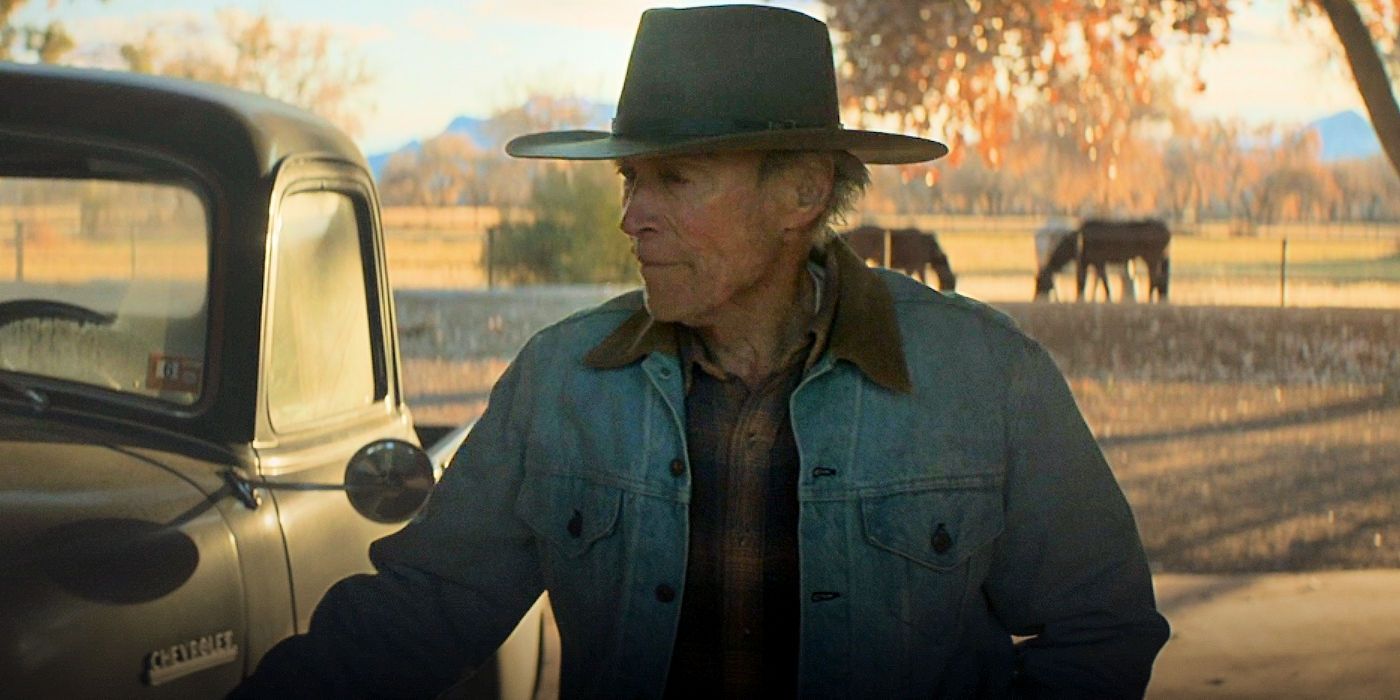Clint Eastwood’s Cry Macho presents a critique of the machismo typically associated with the Western genre, but this message often feels half-hearted and unconvincing. This message is suggested by the very title, and the film’s trailer prominently features Eastwood saying, “This whole macho thing is overrated.” The roots of the movie’s difficulties lie in its reluctance to depict its heroes as weak or flawed. As a result, while Cry Macho offers masterful direction and acting from Eastwood, the film’s message rings hollow.
Cry Macho stars Eastwood as Mike, an old rodeo star called into action to retrieve his boss’ son Rafo from Mexico. On their long and winding road back to America, Mike tries to dissuade Rafo from living a “macho” life, using his own decrepit state as an example of the emptiness of masculine success. This message makes Cry Macho fit into Eastwood’s Western films, which often critique the standards of the genre and its belief in masculine violence.
One of the main issues is that, in macho terms, Mike is still successful. He can stagger much younger men in fistfights and outdrive the police. Cry Macho has two significant female characters, and both desire the much older Mike, with Leta’s failed attempt to seduce him being the basis of the movie’s conflict. The movie still tries to present its nonagenarian star as an action hero, making its disavowal of macho ideals ring false.

At the beginning of Cry Macho, Mike’s boss Howard provides a brief summary of his life history: After a back injury and a divorce, Mike struggled with addiction, ruining what was left of his career in rodeo. However, the viewer never sees much evidence of this backstory, which is expanded more in N. Richard Nash’s novel, which had a difficult journey to the screen. As a result, while the viewer is told Mike is a fallen and pathetic figure, there is little in the script to support it.
This disconnect between what the audience is told about a character and how they are actually presented carries over to Rafo, the boy Mike must escort to the border. Leta claims that Rafo is “an animal”, and essentially unsalvageable. However, after Mike’s initial encounter with Rafa at a cockfight, he proves to be fairly obedient and easily impressed by Mike’s history. The scene later on where Rafo ridicules Mike as “nothing”, setting up Mike’s big monologue seems to come out of nowhere because he has never really seemed recklessly “macho” before.
To the extent that Cry Macho‘s themes work, it’s because of Eastwood’s performance, which conveys a sense of fatigue and brokenness in every frame. Cry Macho‘s ending has resonance because of Eastwood’s long history as a macho icon and his current elderly state. However, the script feels afraid to diminish Eastwood’s mystique too much or have its protagonists become too unsympathetic. As a result, Cry Macho wants to have its macho cake and critique it too, undermining the message the movie purports to send.




